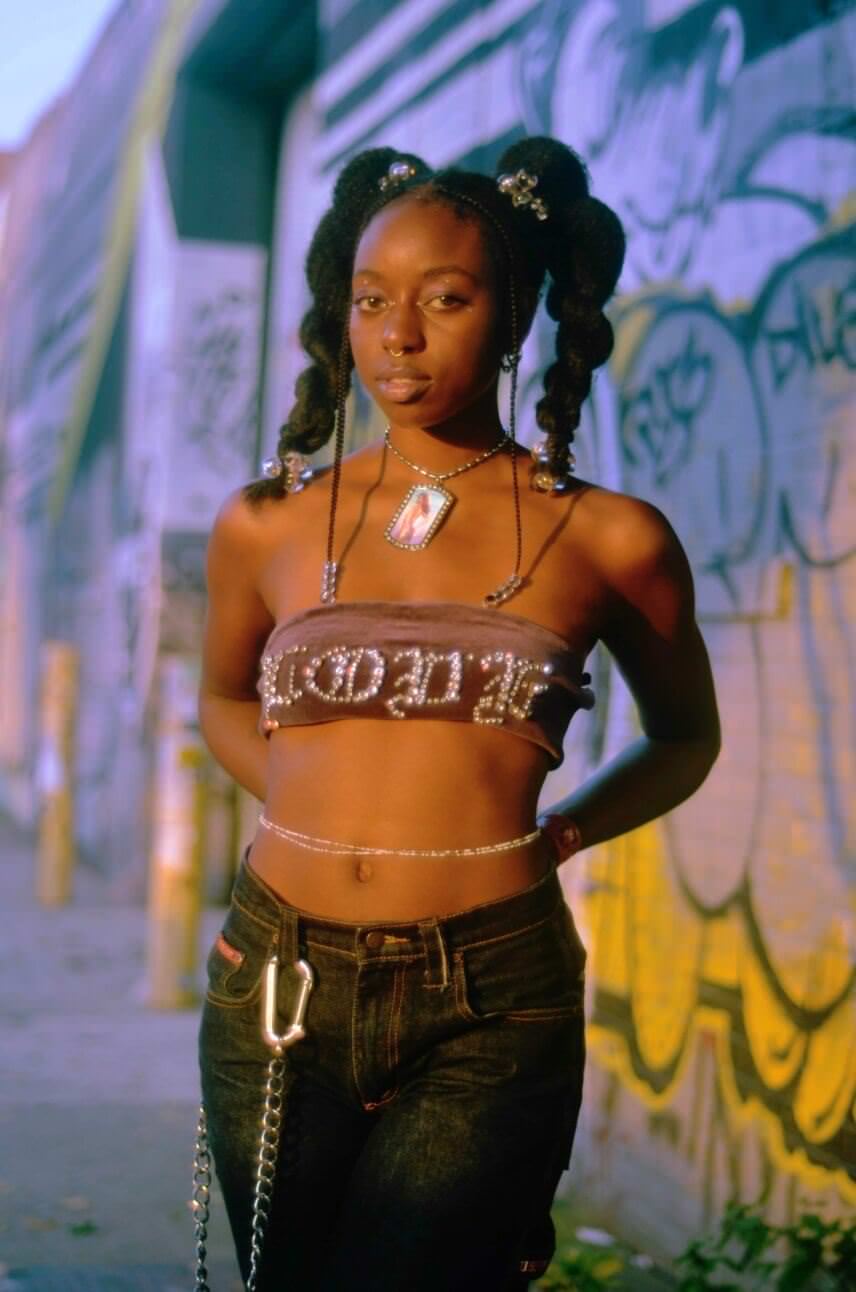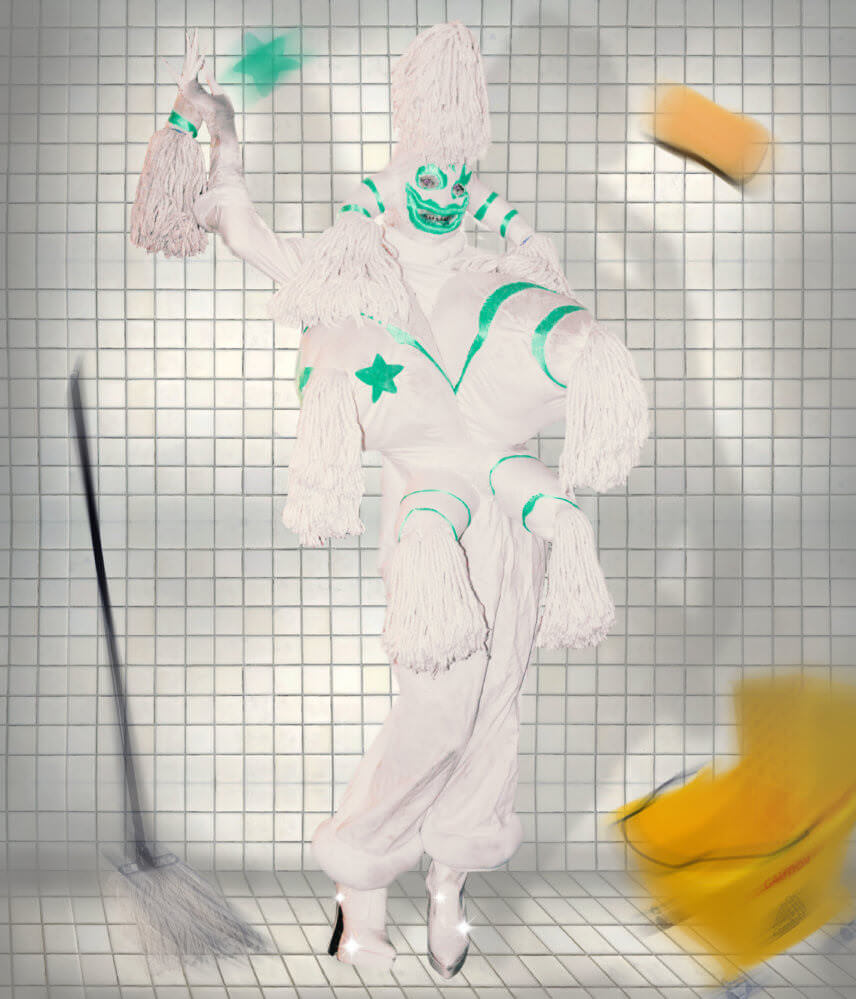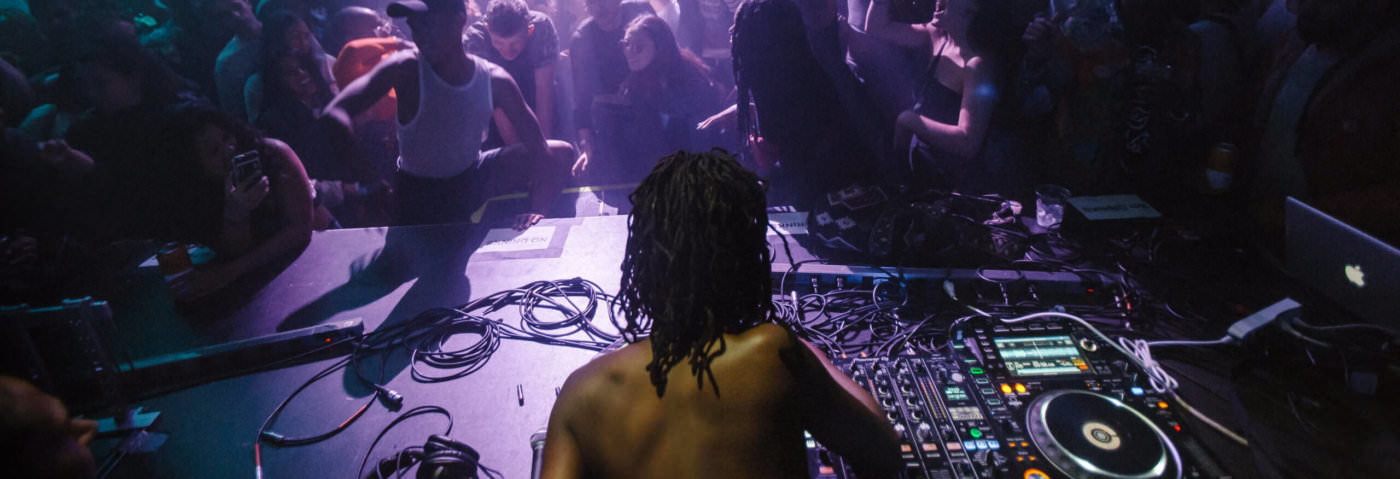What is dance culture without the clubs? To celebrate Pride Month, we take a look at a queer online dance party attempting to recreate the club experience in our living rooms.
Whilst lockdown rules are loosening around the world, it seems like raving will be the last thing to return to normal. Until that happens, DJs and party organisers around the world have been finding ways to recreate the experience online, from livestream sets to virtual clubs. But will this ever come close to the real thing?
RAVING ONLINE
Club Quarantine is a queer online dance party, that has been throwing virtual events every night since lockdown began. Hosted on the corporate conference platform, Zoom, the party thrives in uniting the antithetical and unexpected. A new line-up is released each night, drawing together local Canadian DJs like Bambii and Martyn Bootyspoon with underground artists sourced on Soundcloud, as well as a diverse range of experimental pop sounds, from artists such as Caroline Polachek to Yaeji. Hard-hitting techno is often broken up by cheesy and nostalgic bangers, anything from a performance of Rebecca Black’s viral hit ‘Friday’ to a surprise set by pop star Charli XCX, opening with the ‘Macarena’.
The organisers also invite a variety of performance artists, whose acts tend to escalate in surreal and unimaginable ways, from Anne Ham replaying the line ‘Do you ever feel like a plastic bag’ from Katy Perry’s ‘Firework’ dressed in plastic bags, to Yovska dressed as a mop cleaning their house. “You never know what to expect with Club Q,” says Brad Allen, Club Q cofounder. “We always say, it’s like, controlled chaos”.
Throughout the night, the camera flicks to partygoers around the world, evoking the voyeuristic mayhem of Chat Roulette. Dancers twerk; dildos vibrate; acrylic toenails tap a mouse; a live chicken appears on camera; an entire family appears wholesomely nodding their heads to pounding techno. The spotlight function which allows you to be viewed by hundreds of strangers, recreates the elusive air of possibility unique to nights out. Whilst kink and eccentricity are encouraged, there is no pressure to dress or behave in a certain way. A group of pantless men might be followed by a middle-aged woman watching TV. Somehow, neither of these guests feels more or less welcome at the party.
ALONE BUT TOGETHER
“It came at a time when we were all kind of stripped away from our communities”, Brad explains. “I just wanted to connect with my friends from a very interpersonal place. It’s as if our friendship circle just grew and grew to like 60 thousand people”.

Without the possibility of actually going to a club, many people (particularly those who are LGBTQ+) feel that they are lacking an important part of their social lives. As well as their unique social infrastructure, there are neurological reasons why club spaces generate feelings of community. The collective experience of rhythm can facilitate interpersonal synchrony, blurring our conception of self and other. This is why people sometimes talk of ‘losing themselves’ in the music or ‘becoming one’ with the room. Dancing also generates endorphins, making us feel elevated and connected to one another.
Whilst virtual dancing is definitely less synchronised, the shared audio function in the online parties recreates this sense of a shared present. Whether making coffee where the day has just begun or doing shots where the night is going off, strangers across the world can bob their heads to the same beats. This is evident in the groupchat, which fires off throughout the party. Amongst the gush of love and support, there are a lot of goofy or heartfelt messages; “sofa dancing is the fuuuture,”; “these nights are for real saving me thank you all so much”.
Whilst the sensorium of a nightclub is never going to be recreated entirely, virtual clubs can be a liberating experience
As well as providing a communal space for the LGBTQ+ community, the co-founders believe that Club Q opens up important conversations about accessibility and the club experience. “We get a lot of DMs from people thanking us that the party exists,” says co-host Casey MQ. “Someone told us that they’d never been able to go to clubs before because of their social anxiety, and how this has changed the game for them.”
“Any time you have a queer space the terms safe space kind of comes naturally,” Brad posits. “I think people like Club Q because we’re inclusive, we don’t take ourselves too seriously, it’s just a really fun time.”
DANCING WITHOUT A DANCEFLOOR
cry$cross, a Brooklyn-based DJ views dance spaces as an important aspect of her own identity. Her first “transformative dance floor experience” was during Dweller, an electronic music festival celebrating black underground artists. “I never truly felt that I fit in growing up, but here, amongst this group of complete strangers, I felt a sense of community.”
Whilst she is “guilty of virtual club-hopping on some weekends” and has had a lot of fun performing virtual sets, she is itching to get back to her usual Brooklyn hangouts. “It’s just not the same. I miss the sweat, the fog, the sub blasting in my ears, and feeling the vibrations in my chest.”
“The dance music industry is currently bricked by [the pandemic]. There’s no real other way to put it,” says Martyn Bootyspoon. “It’s a communal experience that has evolved from things like attending mass and other ceremonial activities.”

But whilst dancing solo is always going to be different, he finds that the infrastructure of a club can mostly be rebuilt online. “Virtual parties are working because although they are quite ‘two dimensional’ via sound and vision, they adhere to a communication model [DJs sending, crowds receiving, and vice versa]”.
Apart from needing to ‘Alt+Tab’ in order to see the crowd, he found that he was able to deliver close to what you’d hear of him IRL at Club Quarantine. He was also pleased to see what he describes as “club antics”: “people being lewd, drag performances, people dancing to be noticed, someone shaving their head live on camera at a track breakdown”.
Whilst the sensorium of a nightclub is never going to be recreated entirely, virtual clubs can be a liberating experience. There’s fun to be had in a space where anything goes, but at the same time, we are in the safety of our own homes. And in the meantime, as our realities become increasingly strange and unfamiliar, Club Q’s carnivalesque vortex seems to make perfect sense.
Arielle Domb is a freelance writer based in London. Follow her on Instagram.
Main photo of DJ Bambii: Anthony Tuccitto
